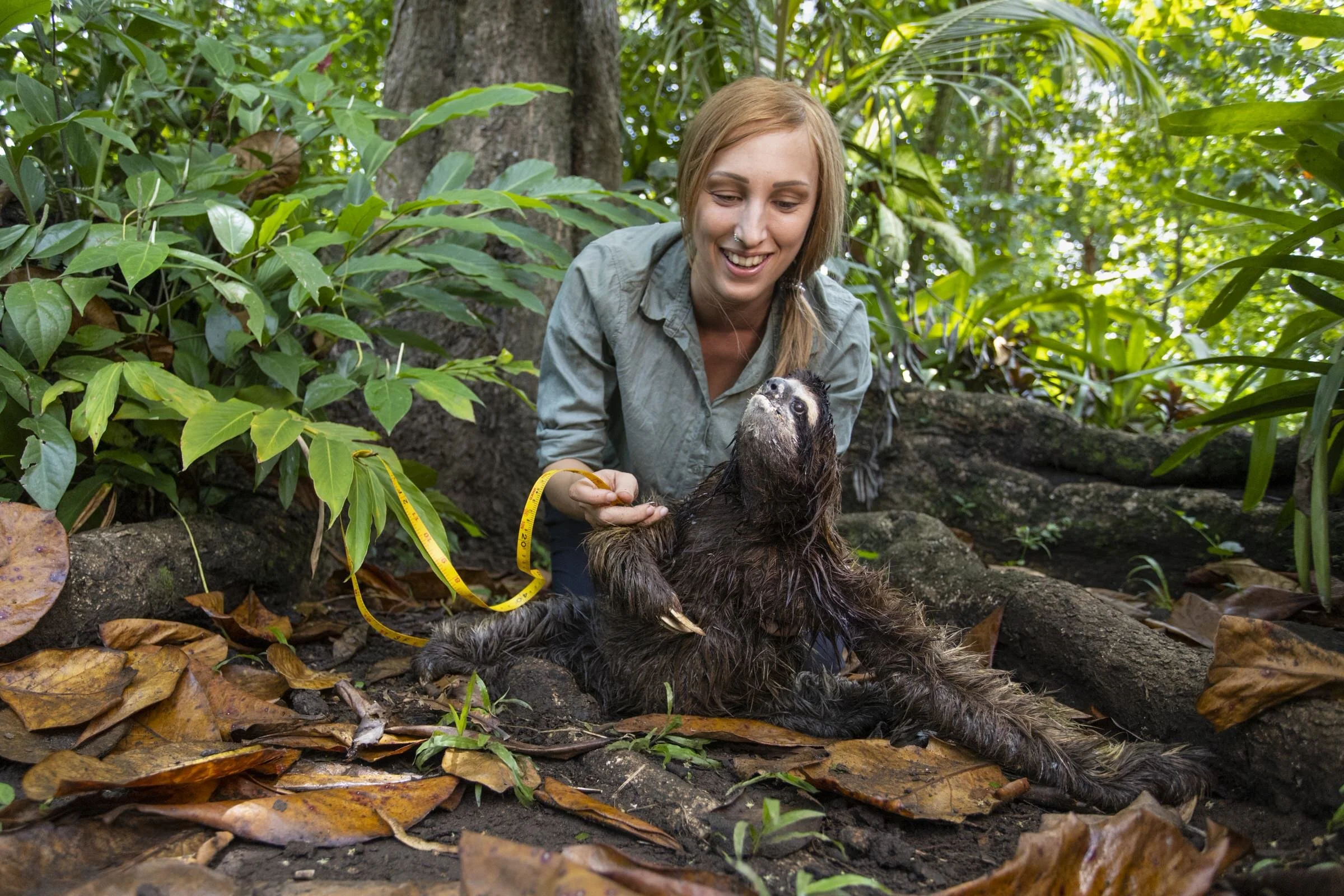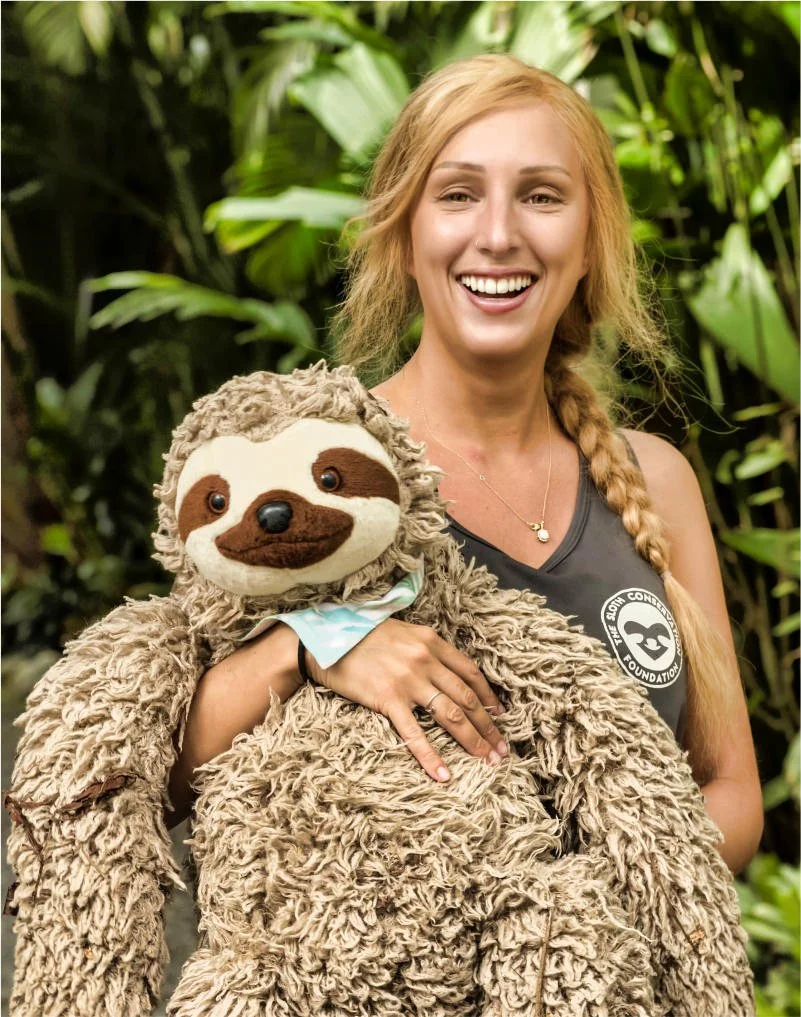
Meet Our Founder
Dr. Rebecca Cliffe
Since 2009, Dr. Rebecca Cliffe has dedicated her life to the study and conservation of one of the world’s most unique and vulnerable creatures: the sloth.

Follow Dr. Cliffe on Instagram: @becky.sloth
From Stilettos to Snake Boots: Dr. Cliffe’s journey began in the concrete jungle of England - and led her to the rainforests of Costa Rica.
At 18, Rebecca boarded a one-way flight to Costa Rica for a year-long research placement, where she encountered her first sloth. While based at a wildlife rescue center, she witnessed the devastating toll of rainforest urbanization - sloths were arriving daily after being electrocuted, attacked, trafficked and displaced. Rebecca realized that while many organizations were focusing on rescuing sloths, little was being done to address the root causes.
She moved permanently to the rainforest, spending six years tracking wild sloths and collecting data that laid the foundation for the longest-running study of sloth ecology. This work formed the basis of her PhD in Bioscience from Swansea University, and has led to important discoveries about how sloths are uniquely affected by temperature, climate change, and urbanization. Her research has provided insights into sloth behavior, genetic diversity, and survival, establishing her as a leading expert in sloth behavior and conservation.
In 2017, Rebecca founded the Sloth Conservation Foundation (SloCo), a nonprofit dedicated to research-driven conservation. Today, she leads field programs in Costa Rica, working with local communities to restore ecosystems and reduce human–wildlife conflict. Under her leadership, SloCo has become the world’s leading authority on sloth conservation.
Her work has been recognized internationally, including the Future for Nature Award (2022), and has helped shape policy, such as the declaration of the sloth as a national symbol of Costa Rica in 2020. In 2024, Rebecca was honored with the title of Doctor of Science by Swansea University in recognition of her work. She is the author of Life in the Slow Lane, has appeared on major media outlets such as NBC’s Today show and 60 Minutes, and has inspired the children’s book The Adventures of Dr. Sloth, which tells the story of her journey into sloth conservation.
Follow Dr. Rebecca Cliffe on Instagram: @becky.sloth

